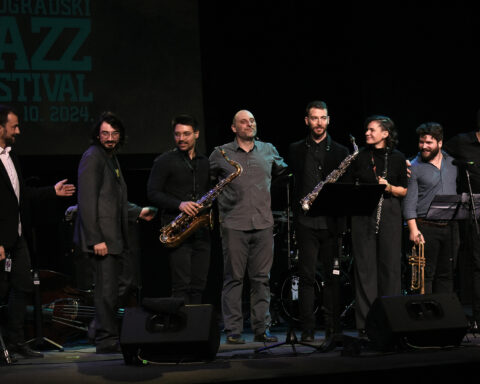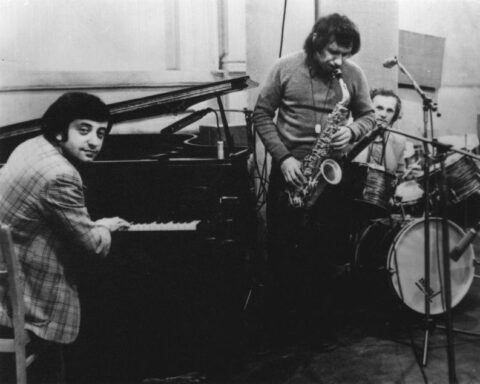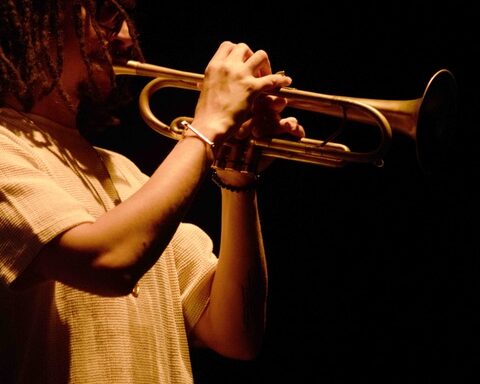I should have written this earlier but a pandemic and busy times made it nigh on impossible, so here goes. The Jazz Journalist Association appointed me as “International Editor” almost a year

ago, so it’s high time I introduce myself, explain the position and say how it fits within the work of the JJA.
Writing, mainly about plants (three books published on botanical subjects) and music, has been a big part of my life for many years. I’ve done academic proofing for Cambridge University Press (for which I was paid in books), been published in Essentials, Bella, Environment Times, Record Collector, The Irish Times, London Life and elsewhere. Over the years, my specialisation has come to be jazz, which I got into when I joined a jazz club in Hampstead, London.
I played oboe and clarinet, but had not brought either with me, thinking I would just sit and listen. The club was run by David Cross (violinist of King Crimson) and he was having no one just sit there. As my background was singing (I’d had parts in Gluck’s Orpheus and Eurydice, Gilbert and Sullivan’s The Sorcerer, won festival classes, been in a couple of bands, made an album etc), David decided I would sing.
I found jazz singing really enjoyable. Using my voice like an instrument, all embarrassment vanished. David’s method was to point at people as we jammed and expect them to play for about eight bars. When it was my turn, he kept pointing for what seemed like ages; when he eventually moved on, something had happened. The reaction from the 30 or so musicians there was wonderfully uplifting. I was rubbish but they were incredibly patient and encouraging.
I loved hearing the others play and eight of us even formed a break-out group so we could play more jazz and experiment (my clarinet joined us at this point). As years went by I learned more, went to more gigs and concerts, and enjoyed the music. I never thought I would write about jazz or be able to if I tried.
However, when I found musicians I liked but hardly anyone knew about I wondered if I could do so. I wanted to share the feelings jazz gave me and bring attention to musicians I felt people should have heard of.
My first published jazz piece was for London Jazz News about The People Band, a free-form combo I had liked for a while. I freely admit that I had help with the piece. One of their players was Davey Payne of the band The Blockheads (I am inordinately proud of being an honorary Blockhead, an honour given to me for my writing), who suggested factual corrections before I sent the piece in for consideration.
When I was called by John Kelman, then-editor of All About Jazz, l believed he thought I was another writer. But he offered me a platform for my work plus my own column, which I called Scumbles, where I could write anything I wanted to that related to jazz. I did not stay with All About Jazz for very long because of its editing requirements, which, frankly, I was not up to, but its initial confidence in me gave me a real boost. I found myself writing for Jazz In Europe, Kind Of Jazz, Something Else Reviews, Jazz Views and Free Jazz Collective, and continue to for the latter three.
During that time I also connected with Anthea Redmond of Jazz Bites Radio. She interviewed me, then offered me shows of my own. I hosted series called “Ladies In Jazz” — repeated twice as it was so popular — “Jazz Unhinged” and “The Jazz Treasure Trove,” which is still running.
I decided to write a book. So many musicians gave me material, and I had also spoken with record label personnel, public relations people, agents, other radio hosts and publishers.
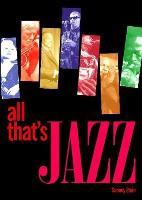
In 2017 my first book All That’s Jazz was published with Tomahawk Press.
I had no idea how well a book written by an unknown would do but All That’s Jazz received wonderful reviews and I decided another book was possible. I wanted to write about women in jazz, 8th House Publishing agreed it was an important subject and Women In Jazz, The Women, The Legends and Their Fight was published in 2018.
In it, women musicians discuss their journeys, the status of women in jazz, misogyny and many other things. Reaction was amazing: The book won a JazzTimes Distaff award, was placed on its Gearhead List, won Phace Magazine‘s Book of The Year award, was nominated for Jazzwise’s and the JJA’s Book of The Year award.
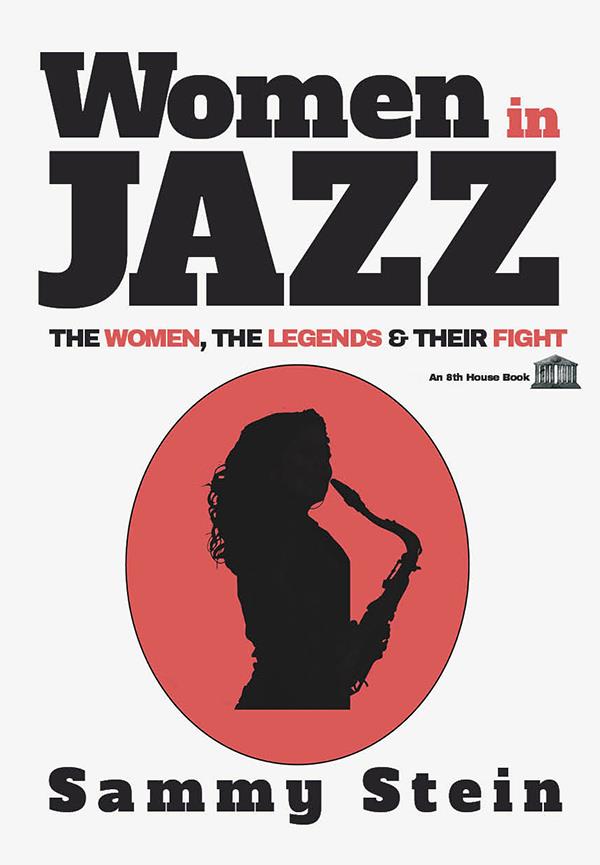
I was amazed at the interest and positivity my book generated, but I also realized it had come out just as a surge in support for women in jazz was issuing from many quarters. I followed up with another book with 8th House, concentrating on the careers of 21 female musicians including Jane Bunnett, Georgia Mancio, Mimi Fox, Camille Thurman and Sheila Jordan. I was then approached by Debbie Burke, a fellow JJA member who wanted to collaborate. I was flattered. At the time I had been asked to write a paper on gender issues in jazz but had decided against it but I had the germ of an idea for a wider look at gender in UK jazz. Debbie liked the idea so we worked together – me doing the writing and research, Debbie editing. Gender Disparity in the UK was published in 2020.
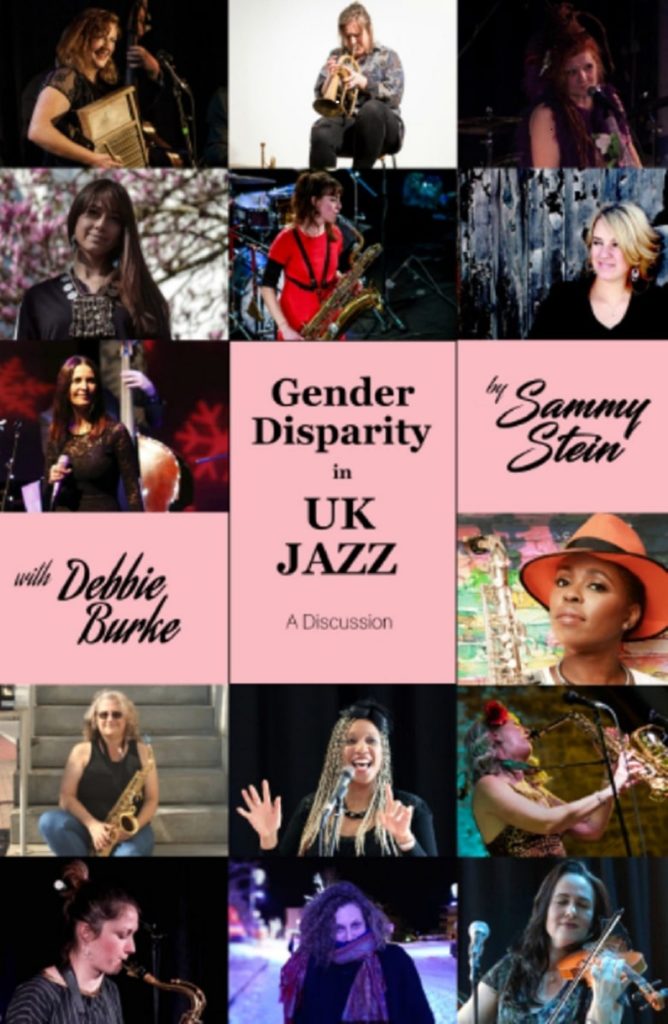
Again, the reaction was amazing and the book was placed on academic study lists for students, cited in research papers, used by a Parliamentary Committee and generally well-received. Encouraged, last year, when the pandemic was impacting so many musicians I decided to try to give them a voice. I interviewed 18 top notch performers about how they coped during lockdowns, loss of income and the knock on effects.
Pause, Play, Repeat, with Tony Kofi, Ivo Perelman, Tara Minton, Emm Gryner, Collette Cooper, Ray Gelato and others telling their tales, was published in 2021.
Now to my relationship with the JJA, which I had joined in 2016 because I’d felt, finally, I could call myself a jazz journalist. I compared several organisations and felt the JJA offered great networking opportunities, good ethics as it works hard to uphold the standards of journalism, and general
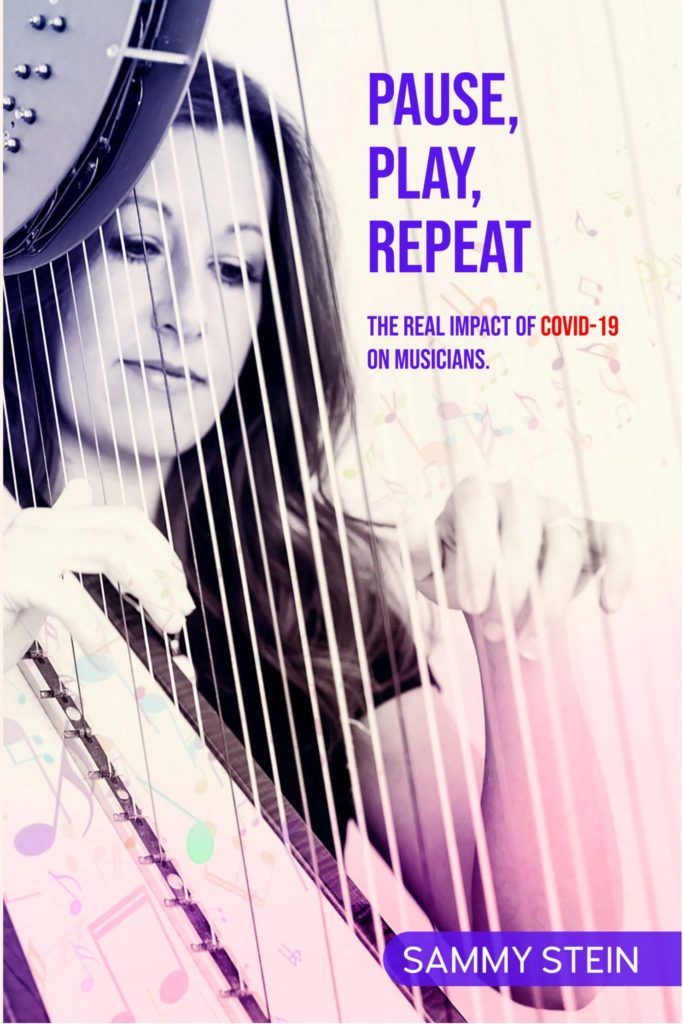
support to fellow journalists. Its reach was wide with members in many countries, and it was appealing that they were open to providing advice on everything from how to negotiate pay and approach publications to how to nurture relationships with other journalists and who to connect with. For USD 95 a year, it seemed good value.
However, due to other commitments with work and writing I did not make good use of the connectivity available, and whilst my relationship with the JJA was good and I found articles on the site interesting, there was a sense of it being very U.S. biased and also, dare I say, slightly male dominated – in fact, mostly male dominated. [Ed. note: As pointed out at the time, half of the JJA’s board members are women, although professional membership skews male].
When my renewal came around the third year, I did nothing. I was contacted by JJA president Howard Mandel politely asking my reasons for not renewing. I very cheekily commented that I felt, for me, the JJA was too U.S. orientated and too ‘male’. To my surprise, Howard agreed and asked if I had any ideas on how to change things.
Diversity, he said, had long been a driving aspect of the JJA, but could well be re-emphasized, and to this end it seemed appropriate to seek writers from across the globe.
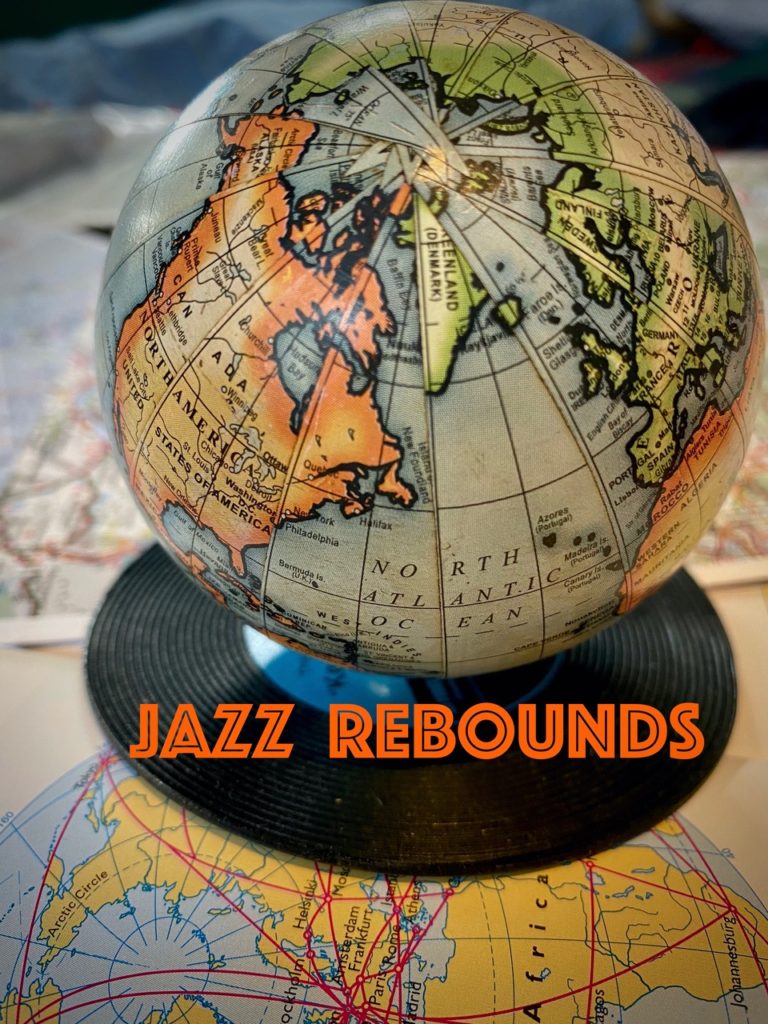
With a pandemic on our hands, a series of articles by people who had not previously written for the JJA reporting on scenes from around the globe dealing with the pandemic could serve to inform the music-journalism community about situations that might otherwise go unknown, though we’re all in this together. We titled the series “Jazz Rebounds” and solicited an image from New Zealand JJA member John Fenton.
Suddenly I was full of ideas and knew people I wanted to bring in on this. Howard was in full support. To create a dedicated contact address, we set up InternationalEditor@JazzJournalists.org. I was to be the International Editor. The prospect was daunting but I decided to give it a try. As I have a large network of contacts based all over, it was to these I first went to ask if anyone was interested in writing for JJANews. Several were – and did.
I had reviewed Kim Cypher and interviewed her for two of my books. With guidance, she wrote a piece and is now enjoying success as a writer for diverse publications besides as a talented musician. Encouraging other journalists is gratifying!
The JJA has proved eager to provide a platform and a free introductory annual membership to those who take on the opportunity to report on their scene. I work with every writer, doing a first pass edit, Howard providing further input on viable improvements. Besides Kim Cypher’s, articles by Matty Bannond, Bob Salmieri, Jeroen de Valk and Paul Acquaro have been published and widely read.
Connecting with fellow JJA members often proves very worthwhile. I edited photographer Luciano Rossetti’s piece for JJANews and when I told him I found getting images for use in publications difficult and costly, he offered me several for free. Having access to works by one of the best photographers in the world is incredible – and I have found an appropriate way to return the favor, having just contracted with Hamilcar Publications for a new book which will include Luciano’s pictures.
One of the best things about writing is how with publication your opinion matters. Of course, I have always had opinions about who should be more widely heard, but now I have the power (for want of a better word) to help and it feels amazing. I have played a small but hopefully significant part in giving many musicians and writers exposure on platforms with good reputations and encouraging their journalistic skills as well as gaining them attention.
The future of the JJA and indeed jazz journalism is bound up wth the imperatives of diversification, to recognize and include female journalists, international writers and those who have been marginalized or denied opportunities. Getting a piece published in JJANews is a way to connect with other journalists and readers, and provides a highly polished clip from a respected platform, disseminated via JJA social media platforms and feeds, to cite as an example of your work. Of course, perks of membership such as voting in the JJA Jazz Awards, celebrating Jazz Heroes in local communities, self-promotion via the JJA’s monthly members’ updates and professional profiles in the Members Directory are also substantial.
So consider this a call for more international writers to come forward with ideas, outlines and graphics suitable for publication. We want news on jazz scenes and trends, not usually on individual artists or groups (which ought to be published elsewhere). We don’t publish reviews — we want reportage. Articles about media developments with impact on jazz, as well as jazz developments of influence in journalism. Self-portraits like this one: How do you function as a jazz journalist? Others want to know!
Email me, InternationalEditor@jazzjournalists.org. Become active in this supportive and collaborative professional community, its member more united in their efforts than narrowly competitive, each and all dedicated to spreading news and views of jazz.




